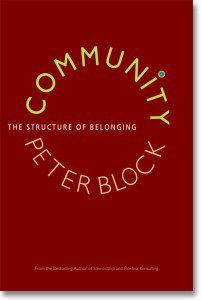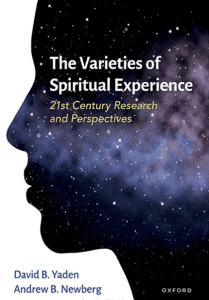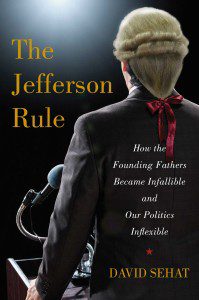At each year’s Unitarian Universalist Association annual General Assembly (GA), multiple official events happen concurrently from 7:00 a.m. to almost midnight each day. Yesterday was the first full day of this year’s GA, and by far the most helpful and practical event I attended was a workshop led by Mark Bernstein, a Regional Consultant for Growth Development, on “Beyond Contentment: Motivating Members to Do More.” My understanding is that a video recording of his presentation will eventually be posted online, but in the meantime, the following are my notes from his 75 minute presentation:
- People do not join a congregation in the hope that someday they will be blessed with the opportunity to make coffee for other members of the congregation, or to chair a committee. They are hurting, curious, or in need of a spiritual community.
Insights from “Management Theory”
What employees want the following from their jobs:
- leadership
- validation
- pride in their work
- trusting relationship
- teamwork,
- commitment to quality,
- involvement,
- personal and professional recognition.
Five greatest predictions of staff satisfaction:
- confidence in the leadership,
- proud to work for the agency,
- trust in what the agency tells me,
- valued at the agency,
- treats me like a person not a number.
(Note: money never shows up at the top of these lists, which are generated from anonymous surveys.)
Insights from book Contented Cows Give Better Milk: The Plain Truth about Employee Engagement and Your Bottom Line
What employees want:
- meaningful work
- high standards
- clear sense of purpose and direction
- balanced “worth-its” (investments in them, and freedom to complete task as the individual believes is best)
- level playing field (not being exploited)
- be and feel competent
Applying Maslow’s “Hierarchy of Needs” to Workplace
(Herzberg’s Motivation-Hygiene Theory)
“Hygiene Factors”
- policies
- supervision
- relationships
- work conditions
- salary
- security
“Motivation Factors”
- achievement
- recognitions
- work itself
- responsibility
- advancement
- personal growth
The critical point is that the opposite of job dissatisfaction is elimination of dissatisfaction. And the elimination of dissatisfactory hygiene factors does not motivate to achieve excellence. For example, getting paid more money does decrease dissatisfaction about getting inadequately paid, but a salary increase does not motivate an employee to either work harder or create job satisfaction.
“Hygiene Factors” in a Unitarian Universalist congregation (or in a similarly religious progressive setting):
- relationships
- covenants
- music
- worship
- pastoral care
- programming (all ages)
- coffee
Note that improving these “hygiene factors” will, at most, eliminate dissatisfaction with these factors; it will decrease the likelihood of these factors driving people away from your congregation. [Also note the strong correlation between the above “hygiene factors” and the “wish list” generated by most congregations that are in search for a new minister, and consider what that insight says about ministers can and can’t do/fix/change!]
“Motivation Factors” in a Unitarian Universalist congregation:
- achievement
- affiliation (connection with others in meaningful ways)
- power/authority [CoA report]
- link to advancing larger movement of UUism (“our life-saving faith”)
- responsibility
- meaning
- affirmation (recognition)
- personal growth
Note: these motivation factors are what will make people stay in your congregation, become active, and keep coming back.
Creating Highly Motivated Participation in Congregational Life
 Highly Recommended Book: Peter Block, Community: The Structure of Belonging
Highly Recommended Book: Peter Block, Community: The Structure of Belonging
- Cultivate Felt Sense of “Ownership” in the Congregation’s present and future.
- People need to feel ownership in room: Is this still my congregation which I can help co-create?
- Ownership asks us to act as if we are creating what exists in the world. We are cause, not effect.
- Need to feel like they are making a contribution or connecting with a a transcendent purpose larger than themselves.
- Recognition of sharing of gifts.
Ask powerful questions that evoke choice for accountability and commitment. Powerful questions do the following:
- Force person to become actor, instead of only a spectator
- Engage in an intimate way, confront them with their freedom, and invite to co-create future of the congregation with you.
- Ambiguous (not attempt to precisely define term, allowing person to define according to personal experience)
- Evokes anxiety: anything that that really matters makes us anxious.
How to Ask “Powerful Questions”
“When you discover your mission, you will feel its demand. It will fill you with enthusiasm and a burning desire to get to work on it.” —Clement Stone
We are not defined by deficiencies or what is missing. We are defined by what is present. — Appreciative Inquiry
| Weak Questions | Powerful Questions |
| (Weak questions maintain dominance of questioner, who already knows the “right” answer to the simple question being asked.) | (People are not a problem to be solved, but a mystery from which ever-greater truth and growth can emerge.) |
| How do we get people to serve on the board? | What gifts do you hold that you are willing to bring to this congregation? |
| How do we get people to accept the move to two services? | What are you willing to give up to move forward? (In answering you act) |
| How do we get people to give more money? | What is the commitment that you bring to this congregation? |
| How do we get people to attend annual meetings? | How valuable do we want your involvement with this congregation to be? |
| For a new member class: | What do you risk by becoming a member of this congregation? (Anything of value comes with a cost)How valuable an experience do you plan for this experience to be? |
| Contribution and purpose: | How do you feel called to live out your UU beliefs?What are you called to do as a member of this congregation? |
| Acknowledgement of Gifts | What is the gift(s) that you wish to share with other members of this congregation? |
| (How will you acknowledge the fits that other members bring forth into the congregation? Need to constantly acknowledge contributions people make.) |
Strategies for recruiting
- Test the waters with a asking for a one-time commitment. Test-drive with no strings attached, no pressure to join the team. If they like it, they can come back. Low-pressure environment.
- Make sure congregation knows that volunteers are needed. (Name what you would do if you had more volunteers.)
- Advertise areas that need more volunteers.
- Start a “connection desk,” where people can go to find out ways to get involved in the congregation. Mention in every service.
- Empower members to do their own recruitment.
- Recruit mini-recruiters.
- Write and share job descriptions, so that people know that they are signing up for something that is specific and doable.
- Ask people to take on tasks, not to serve on committees
- Set term limits on tenure in which any one person can service on any given committee and perhaps have committee heads elected by the congregation
- If you request that someone take on a leadership role, offer a system of support that is already in place.
- Acknowledge efforts of volunteers with mentions in at worship, in the newsletter, order of service, and celebratory events.
- UU Fellowship of Centre, Hospitality Teams [LINK]
GINE (“Good Idea No Energy”: don’t move forward until “x” number willing to invest time, not just because one person suggests it (and sometimes doesn’t even have energy themselves for acting on idea)
Four Vital Discernment Questions”:
- What is your passion?
- What are your gifts (born with)?
- What are your talents (developed)?
- What would you be willing to teach at least one other person?
“If you want to build a ship, don’t drum up people together to collect wood, and don’t assign them tasks and work, but rather teach them to long for the endless immensity of the sea.” -—Antoine de Saint-Exupery
The Rev. Dr. Carl Gregg is a trained spiritual director, a D.Min. graduate of San Francisco Theological Seminary, and the minister of the Unitarian Universalist Congregation of Frederick, Maryland. Follow him on Facebook (facebook.com/carlgregg) and Twitter (@carlgregg).
Learn more about Unitarian Universalism:
http://www.uua.org/beliefs/principles
















